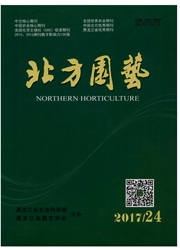

 中文摘要:
中文摘要:
以沈阳张士灌区重金属污染土壤为修复对象,采用盆栽试验,研究了乙二胺四乙酸(EDTA)对白菜富集重金属及其生长状况的影响.结果表明,EDTA能够提高白菜对土壤中Cu、CA、Pb和Zn的植物提取效率.受EDTA与不同重金属络合能力的影响,EDTA辅助提取Cd和Zn的有效施加量高于提取Cu和Pb的有效施加量,其对Cu、Pb和cd、zn的有效施加质量摩尔浓度分别为3mmol·kg-1和5mmol·kg-1植物提取效率随着EDTA施加量的增加而升高.高质量摩尔浓度EDTA的施用降低了白菜地上部的生物量,因此,在实践应用中应在植物已具有较高生物量的情况下进行EDTA的施加,从而避免因植物生长受抑制而导致的植物提取效率降低.
 英文摘要:
英文摘要:
Series of pot experiments were conducted to investigate the effect of ethylenediamine tetraacetic acid (EDTA) on the heavy metals accumulation in Chinese cabbage growing in heavy metals contaminated soils of Zhangshi irrigation area in Shenyang, and the growth of Chinese cabbage was also investigated. The results show that EDTA could improve Cu, Cd, Pb and Zn extraction efficiency of Chinese cabbage. Due to the complexing ability of EDTA with different heavy metals, the effective EDTA amount for extraction Cd and Zn is higher than that for Cu and Pb. The effective EDTA amount for Cu and Pb is 3 mmol ~ kg-1 , while 5 mmol ~ kg-1 for Cd and Zn. The efficiency of plant extraction increases with the increasing amount of EDTA. High molality of EDTA reduce the aboveground biomass of cabbage. Therefore, in practical application, EDTA should be applied when the plants have higher biomass, so as to avoid decreasing plant extraction efficiency as a result of restrained plant growth.
 同期刊论文项目
同期刊论文项目
 同项目期刊论文
同项目期刊论文
 期刊信息
期刊信息
